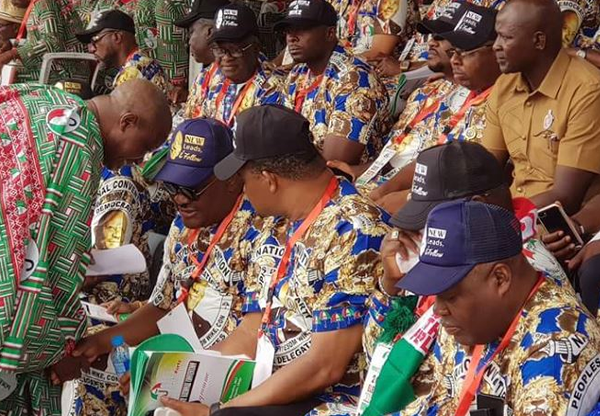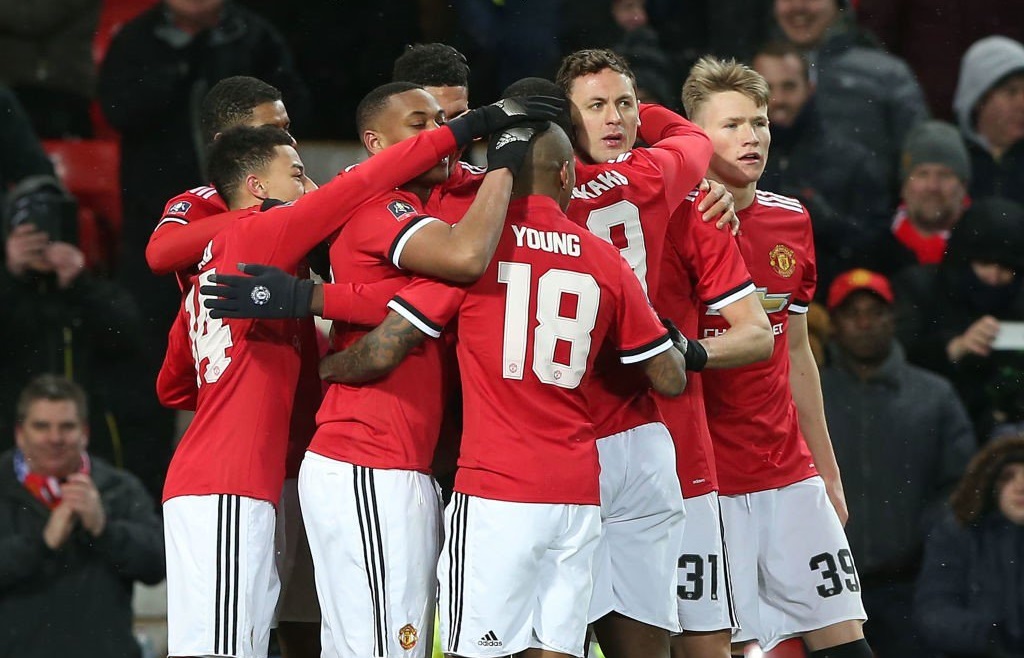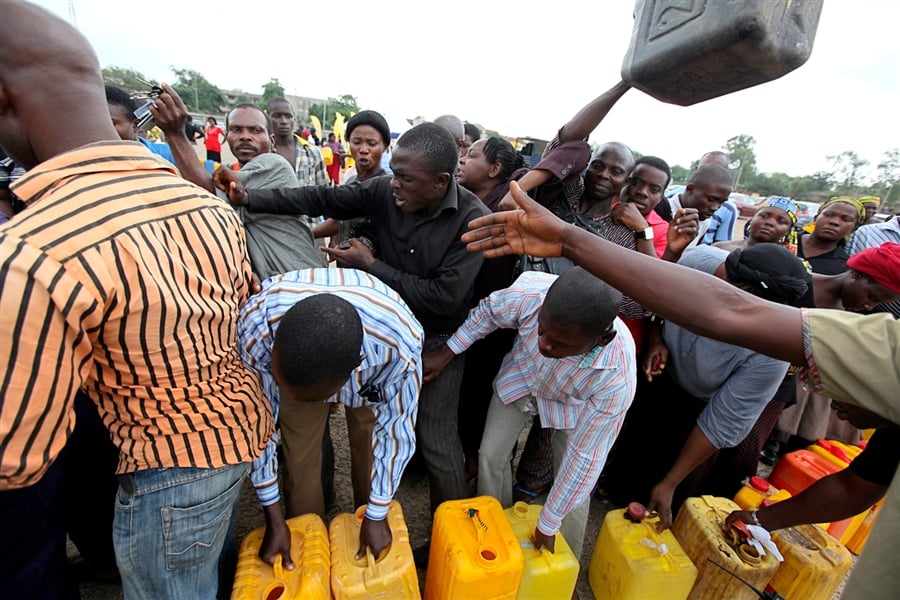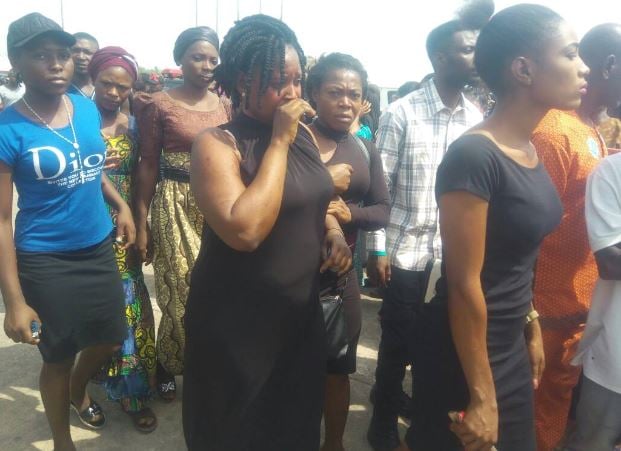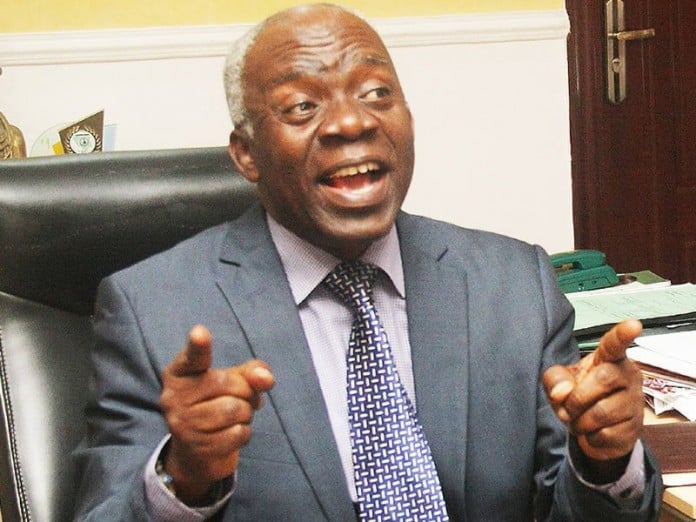A huge number of Nigerians, from what I can see, will vote against President Muhammadu Buhari in 2019. Which is no news, really. All you need to do is read the newspapers, watch the TV, listen to the radio or browse the internet to come to that conclusion. Those who voted against him in 2015 will certainly do it again. But the crowd is expanding rapidly, from what I can glean, and this is what should actually worry Buhari, who has so far not hidden his intention to seek a second term in office. When your opponents rally against you, that is natural. But when your own supporters become openly critical of you, then you need to worry. Buhari needs to lose some sleep.
But anytime someone tells me Buhari has lost much goodwill and does not deserve another term in office in 2019, the statement I usually make is that “you cannot analyse an election in isolation of the opposition”. It is not enough to say an incumbent has failed and does not deserve another chance. You need to also work out how he will be voted out. If not, he will get re-elected by default in spite of public disenchantment. People can be dissatisfied as much as they want, but that could translate to nothing in the end. In the “aluta” community, they say “organise, don’t agonise”. No amount of agonising can defeat Buhari if the opposition is not well organised.
The way the Nigerian political firmament is today, what you can call opposition is highly fragmented. Coming barely a year to the general election, this is no good news. I’m told 24 hours is a long time in politics and something major can still happen — which is true. However, by this time in 2014, APC was already consolidated and ready to do battle. Today, much of opposition’s hope is built on the assumption that people are disappointed with Buhari and will automatically vote against him. Yet we know you don’t defeat an incumbent in Africa through wishful thinking. Anywhere an incumbent has lost, it is usually because the opposition played smarter.
If it is so easy to displace an incumbent, PDP would have been sent packing since 2003. The disenchantment with President Olusegun Obasanjo was such that his popularity was arguably at an all-time low. He had lost a large chunk of support in the north because of a supposed agreement that he would do only one term. He had fallen out with the south-east as the campaign for the sovereign state of Biafra gathered pace. He had offended the south-south because of the delay in implementing 13% derivation and the destruction of Odi. PDP was alien to the south-west, although Obasanjo was banking on the “shon of the shoil” sentiments to win there.
Advertisement
Generally, Obasanjo was poorly rated during his first term in office. He spent most of the time in the air looking for “foreign investors”. He was constantly at war with the National Assembly and organised labour. There was pervasive insecurity, from Sharia riots in the north to uprising by Bakassi boys and OPC in the south. Political killings were commonplace. Fuel prices kept going up, leading to strikes, and the refineries remained comatose. Power supply was as epileptic as ever. Federal roads were an embarrassment, with the horrendous Benin-Ore axis — the gateway to the oil-rich region that produces the Nigeria’s livelihood — making headlines as the “shame of a nation”.
Obasanjo still went on to get a second term. Why? People would talk about the incumbency factor — which guarantees the misuse of state agencies such as the electoral commission, police, military, DSS, NNPC and CBN. I wouldn’t downplay the significance of that. However, as we saw in 2015, you can control all these things and still lose an election if the opposition is very strong. As at 2003, the opposition was highly fragmented: ANPP (which is now part of APC) was limited to the north; AD (whose leaders later moved on to form AC/ACN before fusing into APC) was basically a south-west property; and APGA was more interested in Biafra.
In a sense, Obasanjo played on the fragmentation of opposition parties to keep PDP in power. In 1999, there were three officially recognised parties — PDP, APP and AD. The military actually wanted a two-party system — which would have produced only PDP and APP — but afraid that the south-west might boycott the election and raise hell again, they lightened the preconditions to accommodate AD. At the end of the general election, PDP produced 21 governors, APP nine and AD six. If APP and AD had fused, as was being proposed then, they would have controlled 15 states and would most likely have grown stronger to keep PDP in check in subsequent elections.
Advertisement
AD, however, insisted on going it alone, ridiculing APP (All Peoples Party) as “Abacha People’s Party” because of the preponderance of those who served the Abacha government. Ironically, AD went into an alliance with the same APP for the 1999 presidential election, losing to the PDP. On assuming office, Obasanjo began to systematically decimate the opposition. He appointed the APP chairman, Alhaji Mahmud Waziri, as his special adviser. He later made the AD chairman, Alhaji Adamu Ahmed Abdulkadir, his special assistant. The opposition was in disarray and began to die in instalment. Thereafter, Obasanjo lured many ANPP (formerly APP) governors into his fold.
After the 2003 polls, most ANPP governors became Obasanjo’s “boys”. Buhari, the ANPP flag bearer, became politically orphaned. Not a single ANPP governor was with him any longer, including Mallam Ibrahim Shekarau who had been elected governor of Kano state simply because Buhari raised his hand. In no time, Nigeria began to move towards a one-party state — which Obasanjo had vigorously propagated for decades as a commentator on African affairs. Many opposition governors started defecting to the PDP. When Obasanjo was leaving in 2007, PDP controlled 29 out of 36 states. The party was walking on water. At some point, they threatened to rule Nigeria for 60 years.
But something changed ahead of the 2015 elections. Many would say it was because of President Goodluck Jonathan’s soft nature — “live and let live” — while others would say it was because there were powerful political forces at play. Whatever it was, the opposition managed to come together, even if it was a marriage of strange bed fellows. Helped by the fracturing of PDP and the defection of five governors, the emerging APC became a redoubtable force. For the first time, the opposition had a real chance of displacing the ruling party. It appeared they had learnt from their failures in 2003, 2007 and 2011. And, by the way, there was a formidable Buhari to fly the flag.
Typical of Nigerian politicians, as soon as Buhari won the election, they began to flock to APC. I was scared and I wrote about it (THISDAY, April 5, 2015), warning that opposition might become insignificant again — the same thing that sustained PDP in power for 16 years. Today, APC has 24 governors to PDP’s 11 and APGA’s one. In the national assembly, legislators are daily defecting to APC without shame. Politicians who could have stayed back to rebuild PDP could not imagine life in political wilderness devoid of milk and honey. They started flocking to APC. Whereas APC is internally unstable, it is not losing as many key members as necessary to impact on its fortune.
Advertisement
PDP, as presently constituted, is still the strongest opposition platform. But its brand image is not sparkling. After overcoming the storm-in-a-tea-cup internal imbroglio which many swore had the hand of APC, the PDP is now perceived as the property of one or two governors. Meanwhile, the SDP has been telling us that governors and senators will defect to “our fold” in large numbers “next week” but next week never seems to come. There is also the third force as well as the third farce. The youth are mobilising and saying they are not too young to run. A lot is going on, but where is the harmonisation? It’s less than 10 months to the nomination of candidates!
What am I driving at? It is not enough to say “Anyone But Buhari”. Agreed, “Anyone But Jonathan” worked magic in 2015, but it was a combination of many factors. For one, the opposition worked together. They were not just shouting “Anyone But Jonathan” all over the place. Remember, too, that there was a Buhari with massive electoral value in the north who was helped by a national movement to take out Jonathan. Yoruba would say “ara ran bombu l’owo”. Everything simply came together in the nick of time. While I am not ruling out the chances of the opposition (I’m not that reckless), I also don’t think they should assume that displacing Buhari is a done deal.
AND FOUR OTHER THINGS…
SANI REVELATION
Senator Shehu Sani has set the ball rolling by telling us how much each senator takes home every month. It comes to over N14m in a country where minimum wage is N18,000. Every senator — Hausa, Yoruba, Igbo, Fulani, Muslim, Christian, conservative, progressive — collects it. The senate spokesman tried to assault our intelligence by saying “it is nothing new, it is in the budget” — knowing fully that it is not broken down. Now that we know what senators earn, what about the reps? They will tell us it is inside the budget! Can the “progressive” reps help us break it down? And may we know how much do members of the 36 houses of assembly take home too? Nigeria!!!
Advertisement
BUHARI VS JONATHAN
Was it not last week that I was wondering why we keep discussing former President Goodluck Jonathan when we should be discussing President Muhammadu Buhari? At what point are we going to move on and face the future? Buhari himself is determined to keep playing that game. He was in Dapchi, Yobe state, where 110 schoolgirls remain missing after being kidnapped, and he boasted that he reacted better than Jonathan did over the Chibok kidnappings in 2014. The parents of the Dapchi girls will not agree with Buhari, though. And you can understand why. If Buhari did better than Jonathan, why are their daughters still with Boko Haram? Simple.
Advertisement
THE TROLLERS
Mr. Olusegun Adeniyi, chairman of THISDAY editorial board and arguably Nigeria’s most popular columnist, almost ran into an ambush on Twitter last week. Assuming that he was going to have an intellectual engagement on the state of the Nigerian media, he walked straight into trolling by one chap who said journalists collect money from Buhari (the fellow even dragged the name of my humble self into it). In my opinion, those who lack integrity are always the first to question the integrity of others. Nevertheless, public debate is critical to our development and all good people must learn to eat the rice and ignore the stone. Tact.
Advertisement
STEPHEN HAWKING
I don’t know much about physics, just that I am always fascinated by things like gravitation, motion, time, space, light, relativity, black hole and stuff. The more I try to understand them, the more I force my brain into overdrive, so I quickly respect myself and give up. Stephen Hawking, the British physicist who just died at the age of 76, goes into history for propounding theories that left fellow physicists with problems to solve! Isaac Newton gave us the law of gravitation. When man eventually landed on the moon over 200 years later, the law was more than confirmed. Hawking’s theory on the black hole will be absolutely confirmed someday. Maybe in AD 2300. Genius.
Advertisement
Add a comment

